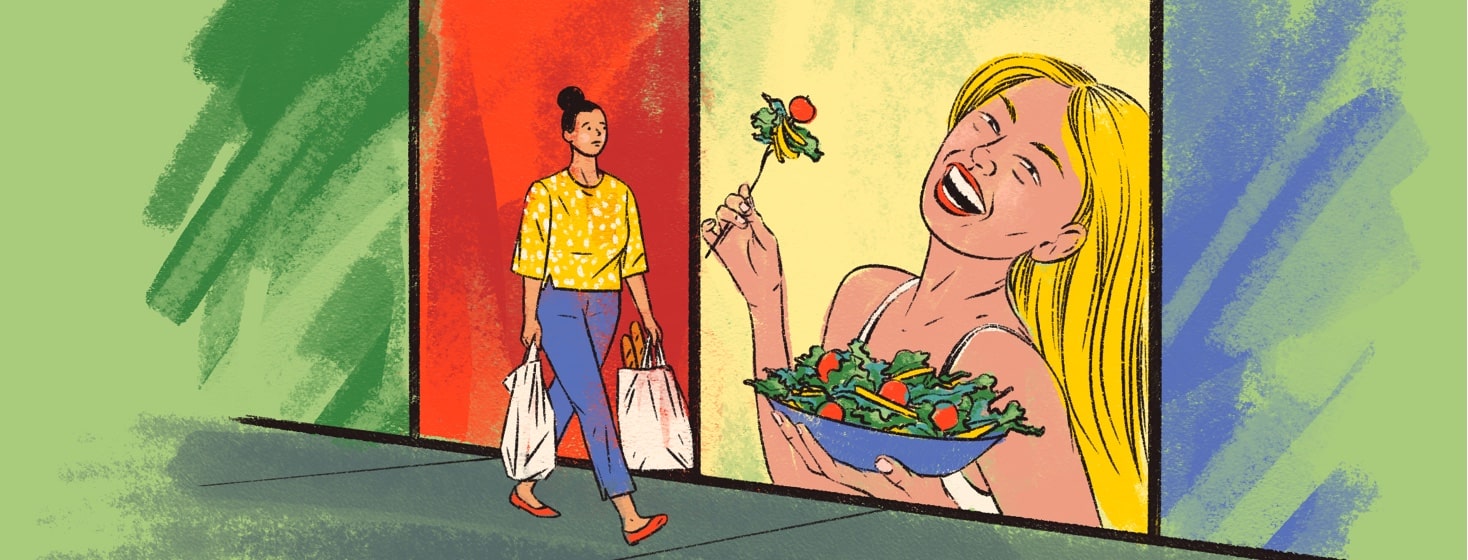Better Safe Than Healthy: Everyday Diet Struggles With IBS-D
I’ve had IBS-D for several years now. And during all those years, I’ve been struggling with the impossibility to eat healthily and still consume foods that are safe for my IBS-D. I’ve addressed this issue several times already, but it never ceases to complicate my everyday life!
The necessity of fasting
One recurring problem I have is that I just cannot eat whenever I have a flare-up. Even when I technically need to. If my digestive system is struggling, it gets upset by everything I put in my body. Even plain rice!
When IBS hits, food is generally the last thing on my mind anyway. But even when I start feeling better, I still don’t want to eat. I just feel that my body needs more time to recover before I start putting food in it. And unfortunately, this can last from several hours to even days.
Now, fasting isn’t always bad, but sometimes it’s just not what you’re supposed to do. Especially when you’re taking medication that has to be consumed during meals, or if you’re breastfeeding like I am.
Once in a while, it gets so bad that even drinking water seems to upset my IBS during a flare. This is especially hard because you’re supposed to stay hydrated, but it’s just not possible.
Sometimes, low FODMAP is not enough
Pinterest seems to be full of healthy low FODMAP recipes. But the truth is, at least for me, that Low FODMAP isn’t always enough. When my IBS is at its worst, anything other than plain carbs and meat can trigger a flare-up.
I can’t tell you how many times I’ve had rice, pasta, beef, and chicken twice a day, multiple days in a row. Because it literally was all I could eat.
Although I know that this isn’t healthy, I sometimes just can’t stomach fruits or vegetables. So, I stick to safe foods, even though I’m probably not getting enough nutrients. And despite knowing that I’m doing the best I can and that my body just can’t handle healthier food, I constantly feel bad for these choices I make.
More often than not, I keep comparing myself to people around me who eat salads and veggies for lunch. To other IBS sufferers who manage to eat healthy, nutritious meals despite their illness.
When IBS takes revenge
Once in a while, I get so frustrated with the way I’m eating that I decide to make an effort to be healthier.
I start by consuming just a bit more fruits and veggies than usual. Then, I somehow start thinking that a salad/soup/ratatouille would be a good idea, and that’s when my IBS stops me and I go back to eating nothing, and then plain carbs again.
This happened so many times in the past, and yet I never seem to learn from my mistakes! Maybe it’s because society tells us that the only way to treat our bodies right is to eat fruits and veggies and reduce carbs and meat. Although part of me knows that this doesn’t work that well for me, I keep wanting to adhere to this ideal.
Every single time when I’ve been symptom-free for a bit, I just want to take advantage of it and finally be healthy. And every single time, IBS takes its revenge.
Even IBS-specific programs can be too optimistic
Recently, I’ve been asked to test a new app that aims to provide safe meal plans for IBS sufferers. I got very excited, hoping to finally fix my problem and eat healthier without triggering symptoms.
But as I should have foreseen, no app can fix my IBS-D. Sure, the recipes it provided were great and didn’t trigger too many symptoms. But whenever I had a flare-up or just a bad day IBS-wise, I still couldn’t eat the suggested meals. Or anything, for that matter.
No matter what I do, I somehow always go back to square one.
Does anyone else struggle to eat with IBS-D, even if meals are low FODMAP and seemingly safe for IBS? And do people with IBS-C face the same problems or the exact opposite ones? I’d love to know what your experiences are!

Join the conversation